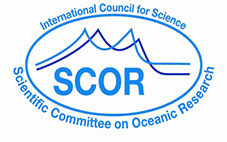Presentation of the edition
The central topic of the colloquium is planned to change every year. Since this summer 2014 is the 10th anniversary of Ramon Margalef’s pass away, we would like to make this year’s colloquia very special, and the topic, exceptionally, will cross the marine boundary to reach a planet view, under the motto: “What Ecology can learn from natural and human-induced disturbances – A cross-system view”. The colloquia will include theoretical and practical activities, all within this central topic, as well as group discussion sessions.
The principal aim of this Colloquia is to enhance the exchange of ideas and to promote imaginative thinking by bringing together ecological knowledge from experts on terrestrial, limnetic and marine systems. Substantial interest has arisen during the last 20 years on global studies in the context of future scenarios. Despite this recognition, very few universities have courses considering cross-system approaches and even fewer international forums have been dedicated to merge experts on the ecology of different systems.










